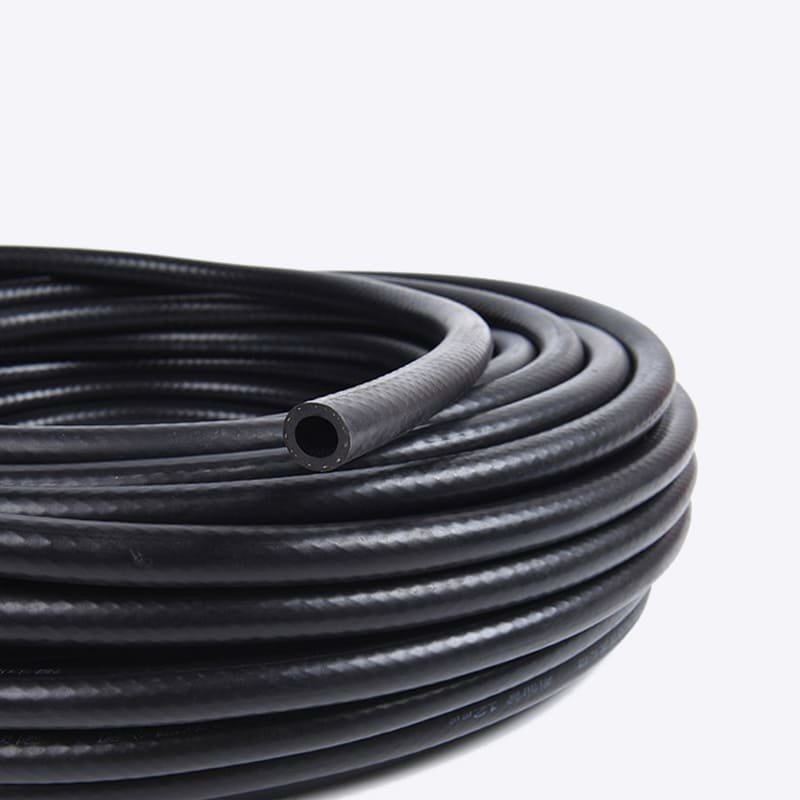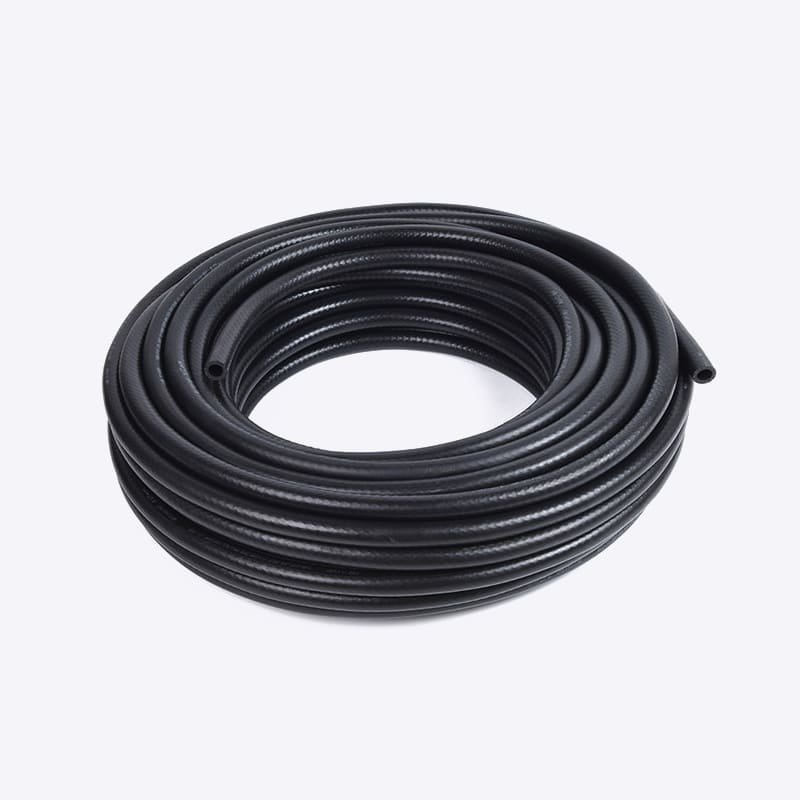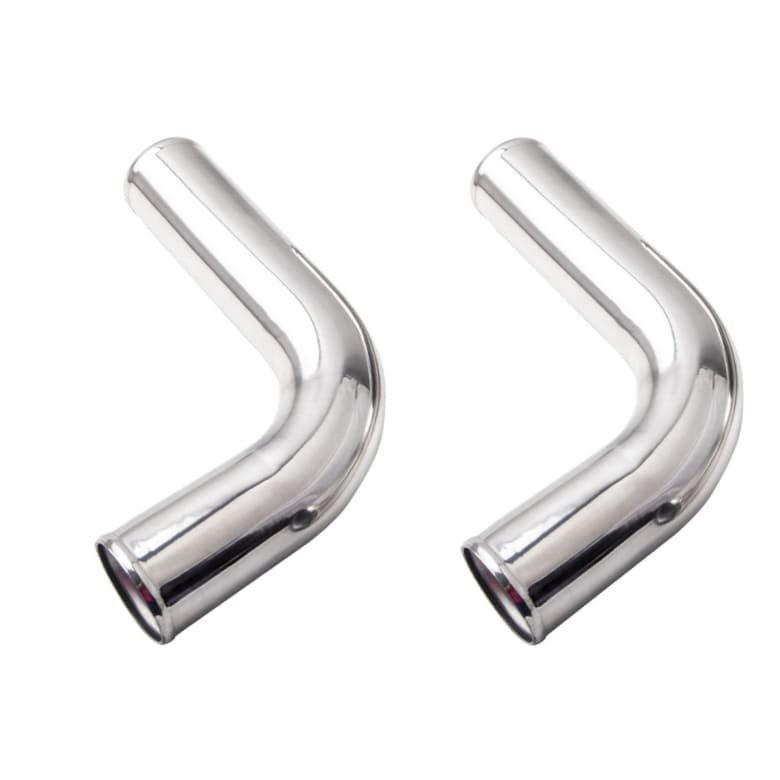Fuel line hoses are a very common part of a car. Understanding the material of fuel lines can help you choose the most suitable product.
Automotive fuel line hoses are typically made of stainless steel, aluminum, coated steel, plastic (nylon), or rubber/elastomer materials. Many modern hoses are lined with polytetrafluoroethylene (PTFE) for superior chemical resistance and durability. Metal hoses offer strength and heat resistance, plastic hoses are lightweight and corrosion-resistant, and rubber hoses are flexible. The choice depends on your vehicle type, fuel type, and performance requirements.
Choosing the right fuel line material requires consideration not only of cost but also of safety, compatibility, and durability. Let’s take a closer look at each of these.
common fuel pipe materials and their advantages
Stainless Steel:
High-grade metal that resists corrosion and rust.
Advantages
Excellent durability
Withstands high pressure and temperature
Resists moisture and road salt corrosion
Long service life
Aluminum:
Lightweight metal commonly used in high-performance and racing applications.
Advantages:
Reduced vehicle weight
Good corrosion resistance
Easy to bend and fabricate
Suitable for high-performance builds
Rubber (NBR, EPDM, Viton):
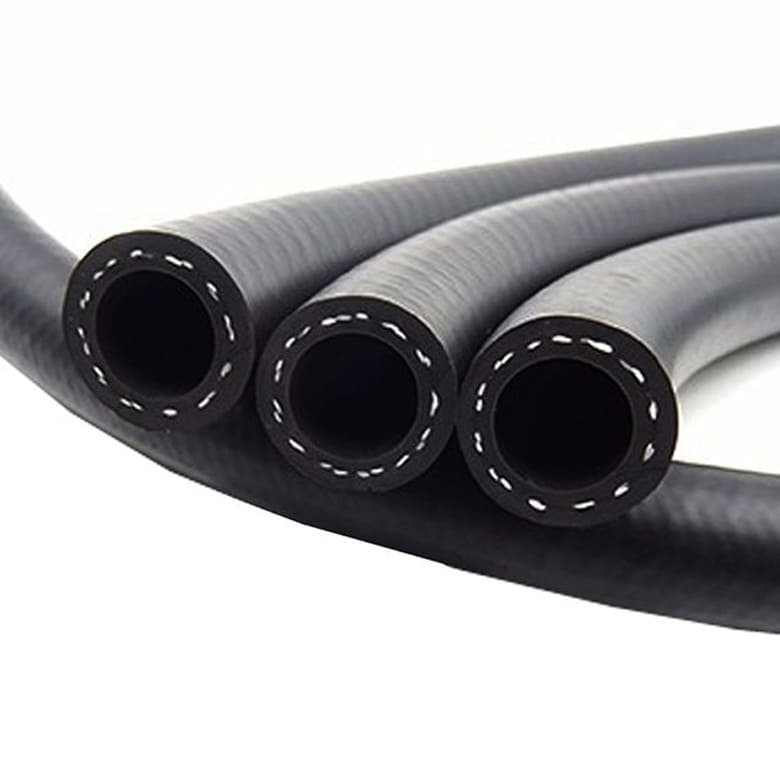
Flexible hose for low- and medium-pressure fuel delivery.
Advantages: Easy to install, Inexpensive, Vibration-resistant, Good flexibility at low temperatures.
PTFE (Polytetrafluoroethylene Liner):
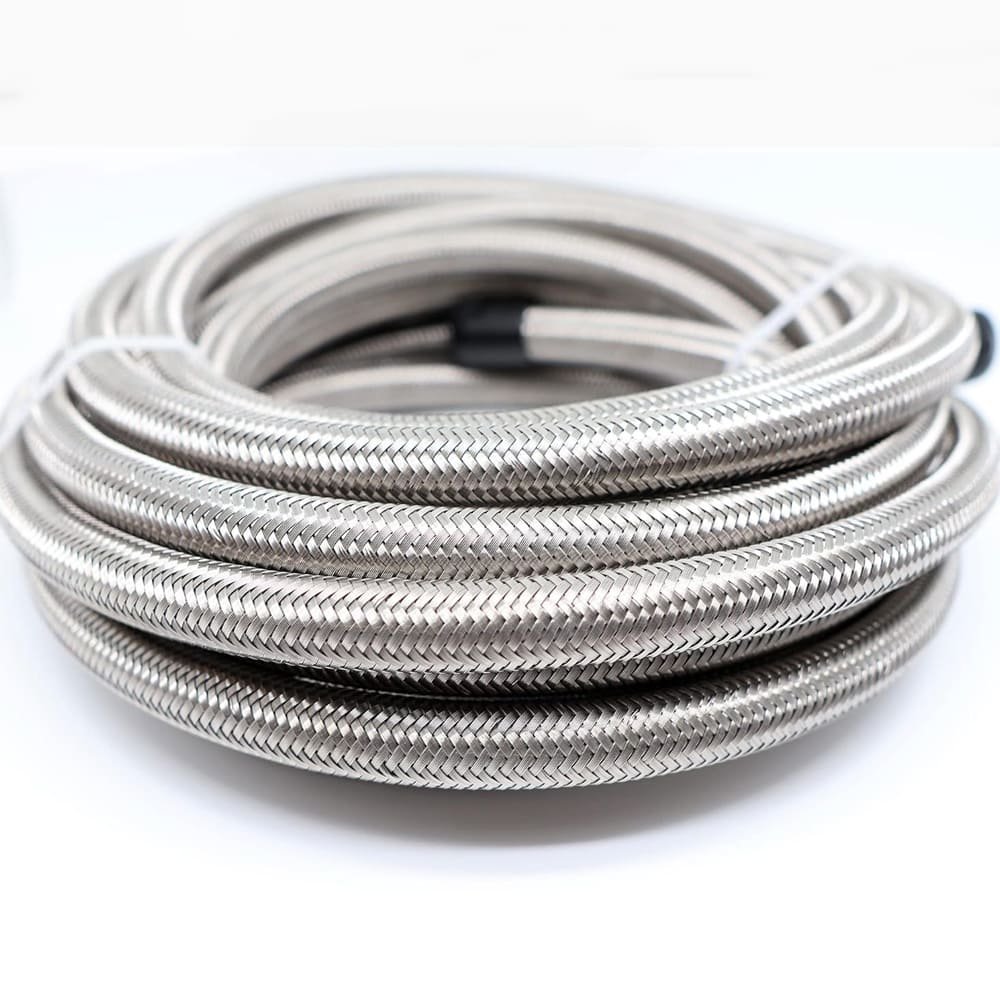
A synthetic fluoropolymer lining is typically found inside braided hoses.
Advantages:
Resistant to ethanol, methanol, and racing fuels
No fuel vapor permeation
High temperature resistance
Extremely long service life
Nylon (Plastic)
Lightweight synthetic polymer used in modern OEM production lines.
Advantages
Corrosion-free
Flexible for tight wiring
Lightweight, improving fuel economy
Compatible with quick-connect fittings
What’s the best material for fuel lines?
The “best” material depends on the fuel type, pressure, and environment. However, PTFE fuel lines (polytetrafluoroethylene) are increasingly considered the gold standard:
Chemical resistance – Handles gasoline, diesel, ethanol blends, and racing fuels without degradation.
Temperature resistance – Withstands the extreme heat of turbocharged engines.
Longevity – Outlasts rubber and even some metals in demanding applications.
Summary
Fuel lines are made from durable metal, lightweight nylon, or flexible, easy-to-install, and affordable rubber. You can choose the product that best suits your needs based on the material’s characteristics. For more details and a product catalog, please contact us today.

